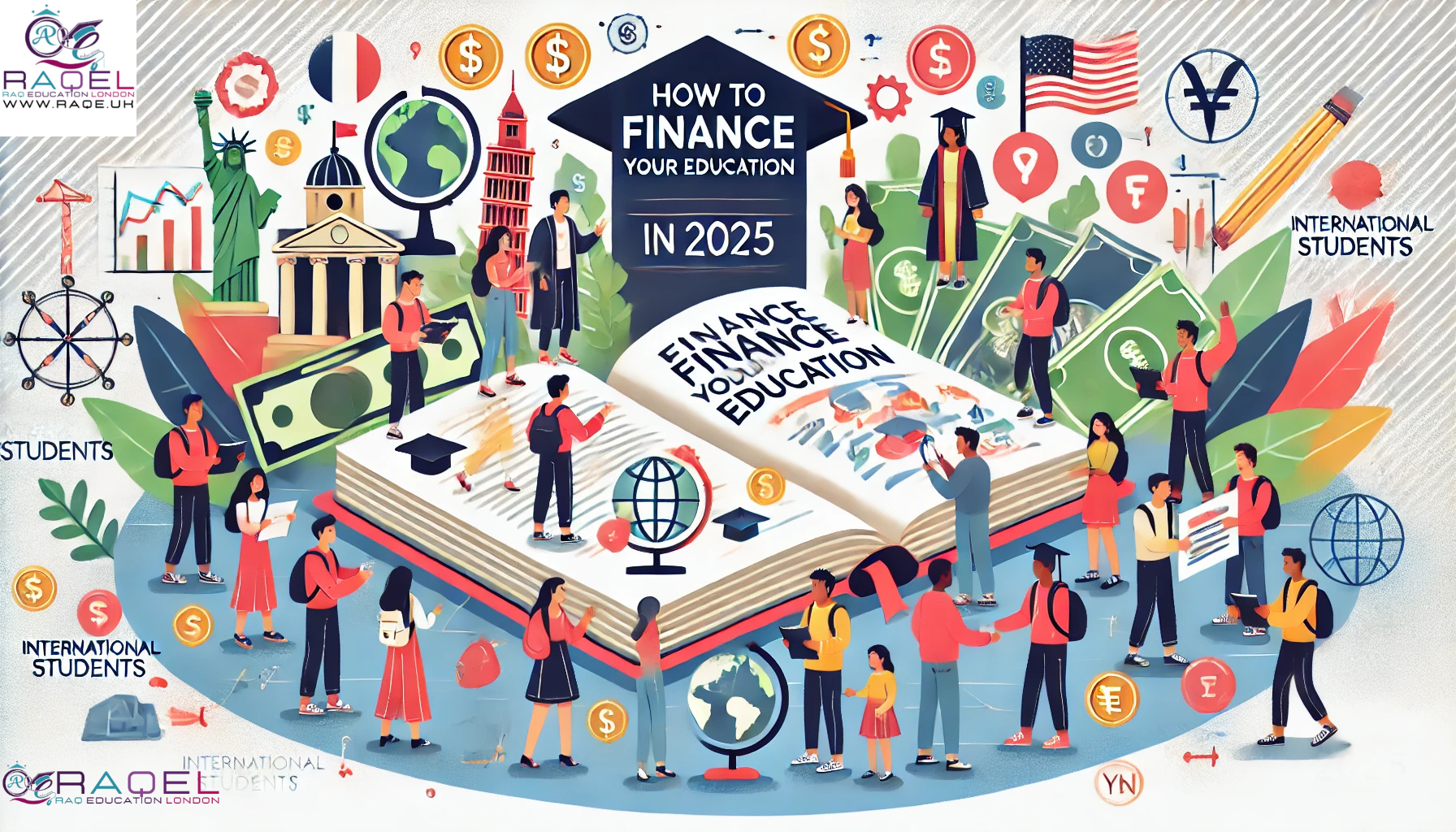
How to Finance Your Education: A Guide for International Students in 2025
Understanding Student Loans for International Students
Securing financing for education can be particularly challenging for international students in 2025. Understanding the various student loan options available is crucial for making informed financial decisions. Generally, two main categories of loans exist: federal student loans and private student loans. Federal loans are typically offered by government entities, whereas private loans are provided by financial institutions, banks, or credit unions and often vary significantly in terms of terms and eligibility.
International students often find themselves ineligible for federal loans, as these are usually reserved for U.S. citizens or permanent residents. Consequently, private loans become a primary financing option. However, to qualify for these loans, foreign students need to meet certain eligibility criteria. Lenders may require a co-signer who is a U.S. citizen or permanent resident, which can serve as an assurance for repayment. Interest rates on private loans generally fluctuate based on the lender’s policies and the borrower’s credit profile, often resulting in higher rates compared to federal loans.
When considering repayment options, international students should examine the various plans offered by lenders. These can range from deferment options to income-driven repayment plans, allowing flexibility based on individual circumstances. It is also important to thoroughly prepare for the loan application process. Students must compile necessary documentation, which may include proof of income, enrollment status, and the educational institution’s acceptance letter. One of the challenges faced by international students is navigating the complicated lending process, as each lender has its own requirements and stipulations.
In this context, starting the application process early can mitigate some of these challenges. Conducting research to understand different lenders and their offerings will also provide students with valuable insights, enabling them to select the most suitable loan options for their educational financing needs.
Part-Time Job Opportunities While Studying Abroad
For international students, financing education and living expenses while studying abroad often necessitates taking on part-time work. Part-time job opportunities not only help alleviate financial stress but also provide students with valuable work experience and the chance to immerse themselves in the local culture. Many students find that balancing work and study enhances their time management skills, which are essential for academic success.
Jobs commonly available to international students encompass a range of sectors, including on-campus and off-campus positions. On-campus opportunities may include roles in libraries, cafeterias, administrative offices, or student organizations, which are generally more accessible as they align with students’ schedules and legal regulations. Off-campus employment can involve positions in retail, hospitality, and service industries that frequently require extra help and are often flexible with hours. Many international students find opportunities in food service or internships related to their field of study, which can add invaluable experience to their resumes.
Furthermore, it is important for students to be aware of the legal regulations surrounding work permits and student visas in their host countries. Most countries allow international students to work part-time during their studies, but there are typically restrictions regarding the number of hours permitted weekly. Students should ensure they are familiar with their visa requirements and secure the necessary documentation before seeking employment. This ensures compliance with local regulations and minimizes any legal issues that could impede their academic progress.
To effectively balance work and studies, students should prioritize time management and create structured schedules that allocate sufficient time for both academic responsibilities and job commitments. Setting clear goals and regularly reviewing progress in both areas can help maintain the necessary equilibrium. With careful planning, part-time work can prove beneficial in financing education while enhancing the overall study abroad experience.
Navigating Financial Aid Options for International Students
International students often face unique challenges when seeking financial aid for their education. Fortunately, there are several options available to assist them in financing their studies. Scholarships, grants, and fellowships are the most common types of financial aid available for students. Each of these options has its own eligibility criteria, application processes, and deadlines which must be carefully navigated.
Scholarships are typically awarded based on merit, financial need, or specific criteria related to a student’s background or field of study. To find scholarships, international students should explore opportunities offered by universities, private organizations, and government programs. Websites dedicated to scholarship searches can provide a comprehensive list of available options. It is essential to pay attention to eligibility requirements, as they can vary widely.
Grants, on the other hand, are often need-based and do not require repayment. Many universities offer institutional grants specifically for international students. It is advisable to directly contact the financial aid office of the institution to inquire about available grants.
Fellowships are competitive and may involve research or specific projects. These are offered by educational institutions, private foundations, or government agencies. Students should clearly outline their experiences and ambitions in their applications to improve their chances of receiving a fellowship.
When applying for any financial aid, potential candidates must be diligent about deadlines. Creating a calendar that lists all important dates can help to ensure that no opportunities are missed. Additionally, writing compelling application essays is crucial. Students should focus on articulating their goals, experiences, and how the financial aid will help them achieve their educational objectives. Tailoring essays to reflect the mission of the funding organization can strengthen an application.
Several organizations and institutions aid international students financially, such as the Fulbright Program and the United Nations Educational, Scientific and Cultural Organization (UNESCO). By familiarizing themselves with these resources and consistently applying for aid, international students can significantly enhance their chances of financing their educational pursuits.
Budgeting Tips for Managing Expenses Abroad
Managing finances is a crucial aspect for international students studying abroad. Effective budgeting can help students navigate their financial responsibilities while ensuring they have sufficient funds for essential expenses. The first step in creating a budget is assessing one’s income versus expenses. Students should compile a list of all sources of income, including scholarships, part-time jobs, and family support, and then estimate their monthly expenses. This may include tuition, housing, utilities, groceries, transportation, and personal expenses.
Once the income and expenses are identified, students can categorize their spending into necessary and discretionary items. Necessary expenses are those that are essential for daily living, such as rent and food, while discretionary spending might include dining out or entertainment. By distinguishing between these categories, students can prioritize their financial commitments and identify areas where they can cut back.
Utilizing budgeting tools and apps can greatly enhance the budgeting process. Numerous resources are available that allow students to track their income, expenses, and spending habits over time. By routinely monitoring finances through these apps, students can identify trends and adjust their budgets accordingly to ensure they remain within their means.
When it comes to managing costs abroad, there are several practical strategies to consider. For housing, international students should explore shared accommodations or student housing options, which are often more affordable. Grocery expenses can be minimized by cooking meals at home rather than dining out. Additionally, students can save on transportation by utilizing public transit systems or carpooling with peers.
Furthermore, establishing an emergency fund can help international students prepare for unexpected financial situations. Setting aside a small percentage of income each month can create a safety net to cover unforeseen expenses, thereby reducing stress and promoting a more secure financial future.
RAQEL
Tag:student loans

 RAQ Education London
RAQ Education London